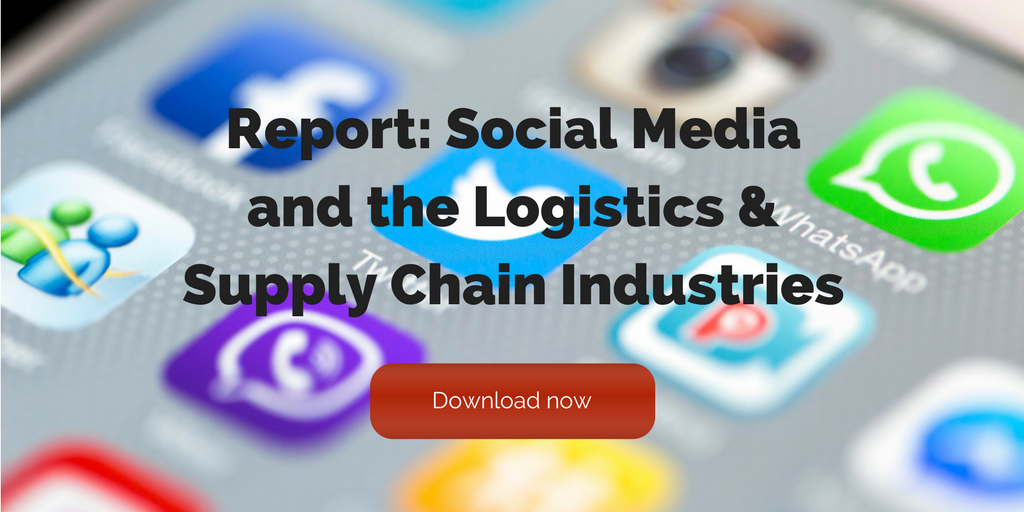
by Fronetics | Nov 22, 2017 | Blog, Leadership, Strategy
Employees are much more than people you employ — they can be your best brand ambassadors.
There are many benefits to having employee brand ambassadors, and one of the biggest is the rise in peer influence in B2B buying. But the benefits don’t stop there. There are the increased social media reach, growth in brand engagement, and elevated employee performances.
But companies can’t force their employees to become brand ambassadors. To be truly effective, the shift from employee to brand ambassador must happen organically. But there are ways to help. Here are 3 ways to use your employees as your greatest marketing tool.
3 ways to cultivate brand ambassadors
1. Create a work environment people enjoy coming to.
One of the best ways to get employees to speak honestly and positively about your brand is to have employees that enjoy coming to work. Make sure that your office is an environment that promotes a positive culture. Being flexible, recognizing a job well done, and offering opportunities for professional growth are ways to cultivate satisfied, productive employees.
When an employee feels valued, s/he is more likely to promote your brand. Opportunities for professional development and recognition for hard work may seem like small gestures, but they contribute to happy employees. This breeds the most effective brand ambassadors.
2. Improve employee engagement.
The more excited your employees are about their jobs, the more engaged they will be. And what’s more, companies with highly engaged employees see a 20% increase in sales and a 10% in customer ratings.
Improve engagement by encouraging open lines of communication with your employees. Make sure they are in-the-know with company happenings. Encourage their feedback. Work to implement suggestions employees make to improve processes. If you want employees to invest in your brand, you must build the bridge between being an employee and feeling like a part of the team. When employees feel like an insider, they are engaged with your brand and will naturally want to promote it.
3. Provide incentives.
When you have employees that are passionate about your brand, it’s important to find ways to recognize the work they’re doing as brand ambassadors. The obvious incentive is money, but that’s not always the best way to encourage your employees.
Ever heard of motivation crowding theory? This theory states that extrinsic motivators, such as monetary incentives, can undermine intrinsic motivation. If you have happy, productive employees that want to rave about your company, don’t squash their excitement by throwing money at them. This could turn their passion into more work.
There are lots of other incentives that will keep your employees dedicated to being brand ambassadors. One of the easiest to implement is recognition. A shout out on your social media pages or recognition in a staff meeting can go a long way. Other options include product giveaways or discounts with your vendors. Get creative! The incentives don’t have to be expensive, but a little motivation can go a long way.
Don’t miss out on one of your brand’s greatest marketing opportunities — your own employees! Help your team make the leap from employee to brand ambassador, and watch how the shift benefits everyone in your office, including you.
Related posts:


by Fronetics | Oct 9, 2017 | Blog, Content Marketing, Marketing, Social Media, Talent
As peer influence becomes increasingly important in B2B buying decisions, empowering employee brand ambassadors will benefit your bottom line.
I recently attended a dinner party where I met a new acquaintance. We talked about our families, our hobbies and, of course, our jobs. She recently started working for a small business about which she was tangibly passionate. After listening to her talk, I went home, immediately started following the company on social media, and purchased some products.
Some companies are overlooking their greatest marketing tool: their employees. That woman made a big impression on me and actually influenced a sale. The experience reflects a trend that’s also growing in the B2B space: the impact of peer influence on buying decisions. In fact, 68% of B2B buyers say they give credence to peer reviews in the purchase process.
Imagine the number of people you could reach through each employee’s peer network. It’s a massive opportunity.
I’ve written lately about the rise of influencer marketing. It’s a strategy B2B businesses are starting to understand and use to their advantage. But you don’t need a Kardashian or even an important industry professional to get started. Employees are your most natural, ready-made influencers.
Here are 3 reasons to invest in making your employees brand ambassadors.
3 benefits of employee brand ambassadors
1. Increased social media reach
According to a study conducted by the MSL Group, employee advocates are connected to 10X as many people as their brand on social media, and can increase the reach of brand content by 561%. If your employees are posting about your company on social media, they’re reaching a much wider audience than your company page is.
While 57% of companies have a LinkedIn company page, 94% of B2B buyers use LinkedIn to distribute content. If your employees are posting company content to their personal LinkedIn accounts, imagine the potential range your brand has to reach new audiences. And these people aren’t hearing it from your corporate page. They’re hearing it from a peer connection. That’s definitely more powerful.
2. Increased brand engagement
When it comes to increasing brand engagement, there is no better place to start than with your own employees. Peer influence is a natural extension of employees who believe in your company and its mission.
While only 3% of employees share company-relevant content on social media, they actually drive a 32% increase in engagement. And their advocacy has a greater impact their peers’ buying decisions than you might imagine. Studies show that leads gathered as a result of employee advocacy convert 7X more often than other leads.
3. Elevated employee (and company) performance
While your employees are advocating for your company, they will also benefit from their new role as brand ambassadors. They will be more engaged and invested in their jobs. And the additional responsibility will foster a sense of pride and professional growth.
That pride translates to greater productivity. Companies with engaged employees outperform those without by up to 202%. But that’s not all! Companies with highly engaged employees saw a 20% increase in sales and a 10% in customer ratings.
Empowering your employees
Successfully reframing your employees as brand ambassadors requires creating a culture that empowers and incentivizes employee participation. Offer them the appropriate training or knowledge. Ask them to complete specific tasks (e.g., sharing company content), and give them room to be creative in their ambassadorship as well. Make sure you regularly engage them and thank them for their help.
Keep in mind: Employees are much more likely to participate if what you’re asking them to do is seen as complementary, not supplementary, to their workload. Make sure you are appropriately compensating them for any activity outside of normal working hours to avoid resentment. And, most importantly, keep the dialogue open. You never know how impactful your employee brand ambassadors can be.
Related posts:

by Fronetics | Jan 26, 2016 | Blog
Employees are much more than people you employ — they can be your best brand ambassadors.
 A friend shared a story recently. He was chatting with a woman at a party years ago. While they were exchanging pleasantries and engaging in small talk, he asked where she worked. She told him that she worked for a certain bank, which happened to be his bank. He felt valued by the company and loyal to it, as it was where he opened his very first bank account when he was just starting college. When he cheerily told her that he was a customer, she promptly and dryly responded, “Oh, have we ripped you off yet?”
A friend shared a story recently. He was chatting with a woman at a party years ago. While they were exchanging pleasantries and engaging in small talk, he asked where she worked. She told him that she worked for a certain bank, which happened to be his bank. He felt valued by the company and loyal to it, as it was where he opened his very first bank account when he was just starting college. When he cheerily told her that he was a customer, she promptly and dryly responded, “Oh, have we ripped you off yet?”
Soon after he changed banks.
Some companies are overlooking their greatest marketing tool: their employees. That woman made a big impression on my friend and actually effected change. Though not the ideal outcome and desired action that the bank would have wanted, it illustrates an interesting point. According to the 2013 Edelman Trust Barometer, “employees rank higher in public trust than a firm’s PR department, CEO, or founder. 41% of us believe that employees are the most credible source of information regarding their business.”
Employee influence is huge. They can be, in fact, your most influential brand ambassadors.
The hope is, of course, that employees share the positive aspects of the business and become vocal champions, providing current and potential customers an interesting perspective that can’t be found in traditional ads and other marketing tools. Employees as assets, not people who punch in, work, and punch out. They can represent and reflect the best aspects of a company.
How can companies introduce and integrate this concept of brand ambassadors into their practices?
Communication
To grow a culture of brand ambassadors, it’s critical to communicate your vision, repeatedly, to your employees, your consumers, and the general public. It’s no longer a question of whether employees will share their experiences about working at your company, but rather whether they’re saying the things you’d prefer them to say.
By companies posting positive stories on Facebook and Twitter, employees can then share those inspiring posts in their own circles. One “I love working here!” post can deeply influence potential consumers. It may be the best marketing power out there.
When a company has a mishap, it’s easy fodder for conversation, but it won’t be the focus of loyal employees, who can redirect the attention to something more positive.
Choose a leader
Choose an employee who can act as a community organizer amongst peers. The leader should be: well-liked, diplomatic, encouraging, responsible, collaborative, and reliable. This is not someone who is demanding and barks orders, but someone who understands the nuances (think: your go-to star who possesses tact and grace).
The leader has many roles, least of which is a guide and role model. She can coach others on best practices and responsible strategies, suggest and review social media content, brainstorm new storylines to promote the company’s message. Sometimes, a simple reminder to update LinkedIn or suggestion to write an article about a positive aspect of the business can get the ball rolling and create regular posting habits.
Remember that the people who work for you are much more than hired help, much more than people you employ. They’re talent. Allow them the opportunity to stretch and use their talent to showcase your brand in new ways. Brand ambassador is not a bad title!

by Fronetics | Aug 18, 2015 | Blog, Leadership, Marketing, Social Media

In one of the most infamous social media gaffes, the insurance giant Aflac fired its widely-recognized spokesman Gilbert Godfrey after he tweeted insensitive comments about the Japanese tsunami in 2011. The rapid growth of social media has created a gray area for employers and employees alike in the space where personal and professional meet, to be certain. But, social media has also presented some of the greatest opportunities for marketing growth since the introduction of the internet. Even so, companies have been slow to relinquish control and absolute authority of their brands on social media. Those that have embraced employees as brand ambassadors, though, have seen mighty returns on their efforts.
A few years ago when Sodexo set out to transform the way it uses social media, no one could have foreseen how successful the initiative would eventually become. Through a series of intentional moves, the company empowered its employees to use social media to extend its brand. In short, Sodexo shifted its social media efforts from strictly marketing to the education and empowerment of employees. Its expanded marketing efforts engaged and mobilized its entire workforce as brand ambassadors. As an example, to find and attract top talent using existing employee connections, Sodexo crafted a targeted social strategy. The company identified employees who were frequent social media users with many connections and tasked them with social job sharing – in other words, employees were asked to use their personal social media accounts to advertise job openings to their collective social connections. In just three years, Sodexo grew their average job opening pageviews per month by over 1,100%.
So how can your company foster a similar online community of connected and engaged employees? To begin, listen and observe. Monitoring the activity of both your company’s social profiles and that of your employees will help you to understand how employees are currently using social media to interact with your brand. From there, you’ll be able to identify employees that are heavy users of social media and which employees are online community influencers. Note what topics and social networks drive the most engagement. Use this initial research to set benchmarks and goals for progress. After you’ve completed the review of your company’s social landscape, you’ll have a clear picture of where the greatest areas of opportunity lie and who to tap for help.
Successfully reframing your employees as brand ambassadors through an intentional social strategy requires creating a culture that empowers and incentivizes employee participation. It’s important to clearly articulate your company’s overall social strategy, but much more important to link its goals and objectives to employee job functions. Employees are much more likely to participate if what you’re asking them to do is seen as complementary, not supplementary to their workload. To encourage informed participation, provide training for your social media brand ambassadors. For example, you could invite a local college professor to present at an internal workshop outlining how to write content specifically for social media. Or, mine existing internal resources by tapping your communications department to lead an introductory corporate digital communications webinar for social brand ambassadors. Creating an informative and sustaining dialogue with your employees will be key in determining whether or not your efforts will be successful.
Once you’ve empowered your employees with the appropriate resources and knowledge, motivate them to participate online. Ask brand ambassadors to follow your company pages, promote company events or initiatives, and share company-posted content. Assign them as group moderators of online communities. Request their contribution as subject matter experts for blog posts. Whatever it is you decide to ask of them, it’s critically important that you regularly engage them. Companies that consistently treat employees as partners in social media by marrying the personal and professional growth of employees stand to gain significant benefits.
Back at Sodexo, a quick glance at the company’s social media profiles reveals a thriving online community driven by employee participation. The Sodexo Facebook page shows a wealth of employee comments and posts, links to employee blogs, and corporate posts highlighting employees. The company’s Twitter account is populated by dedicated hashtags for employees and tweets about employee participation in one of the company’s social initiatives. It’s clear Sodexo’s employees are enjoying the perks that come along with engaging online with their employer. Meanwhile, Sodexo itself is expanding brand awareness, enjoying improved internal communication, increasing sales, and attracting top talent – simply by empowering its own employees to become ambassadors of the brand.






